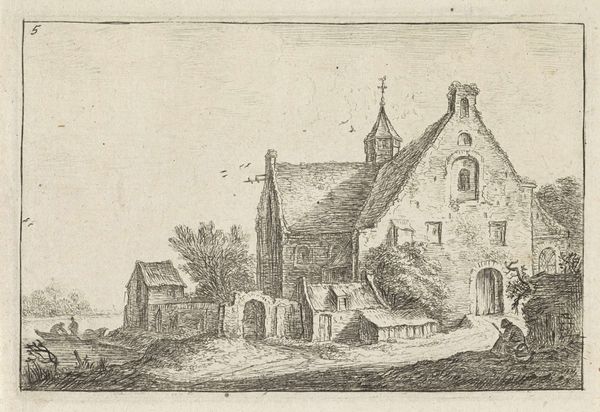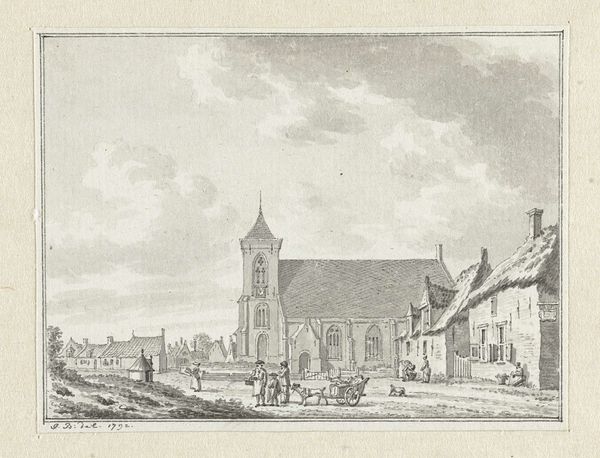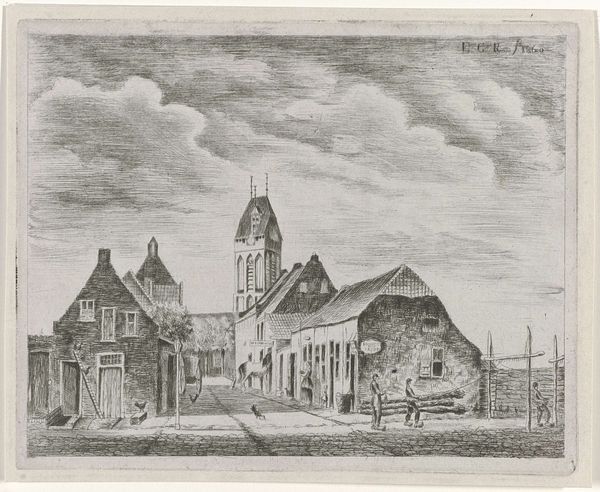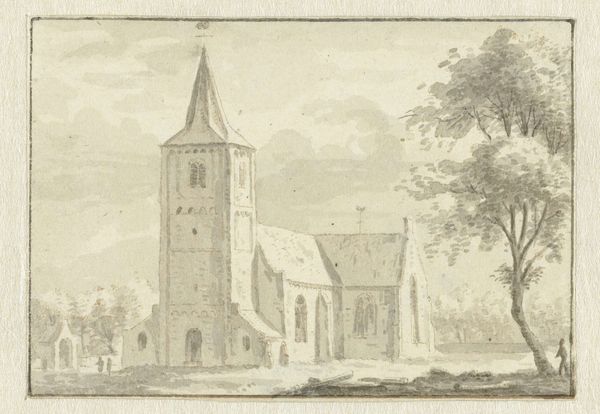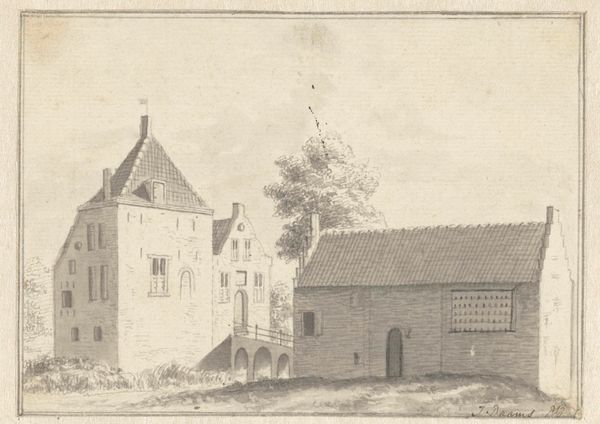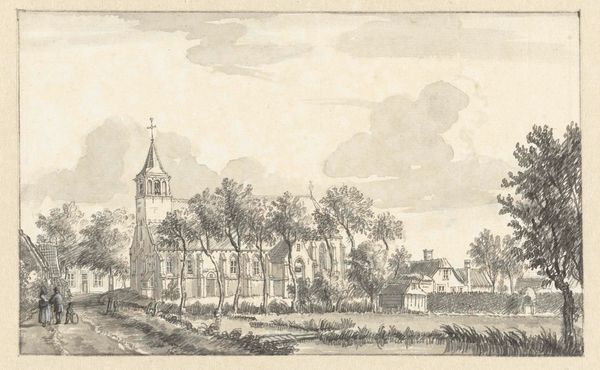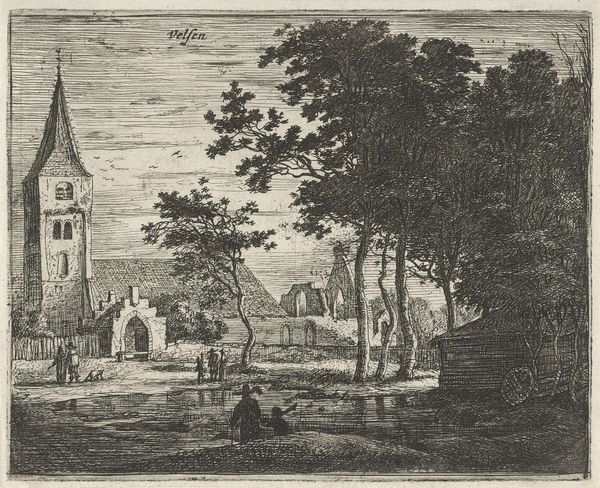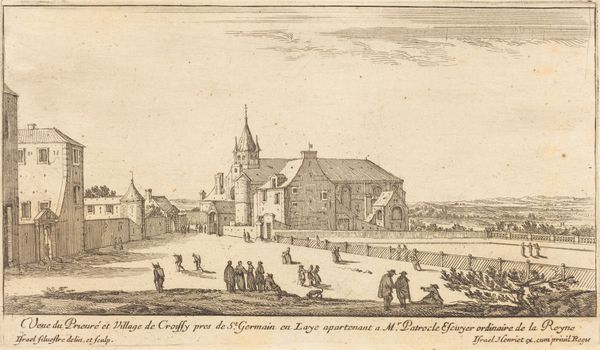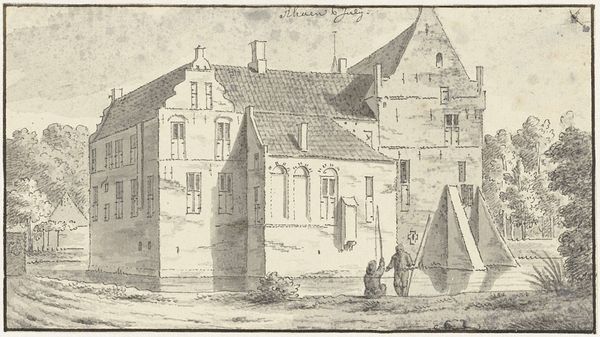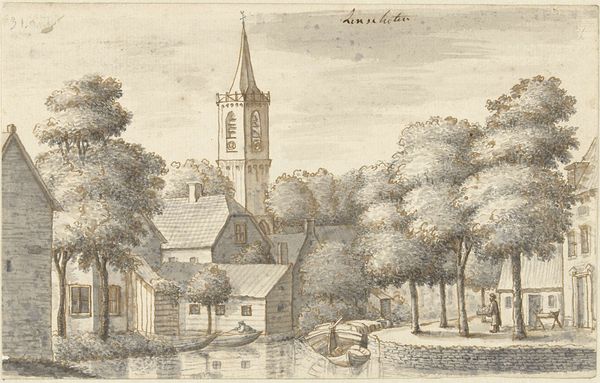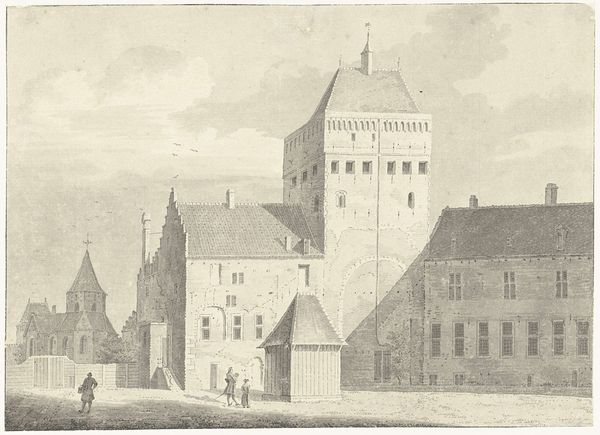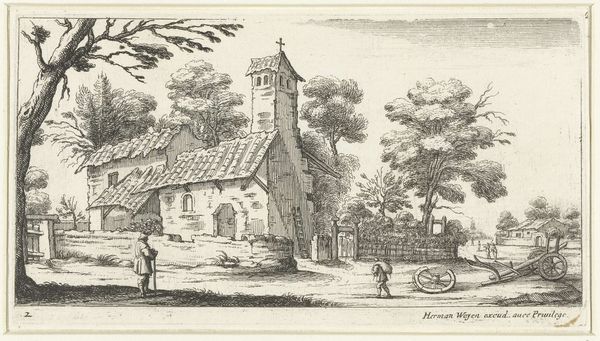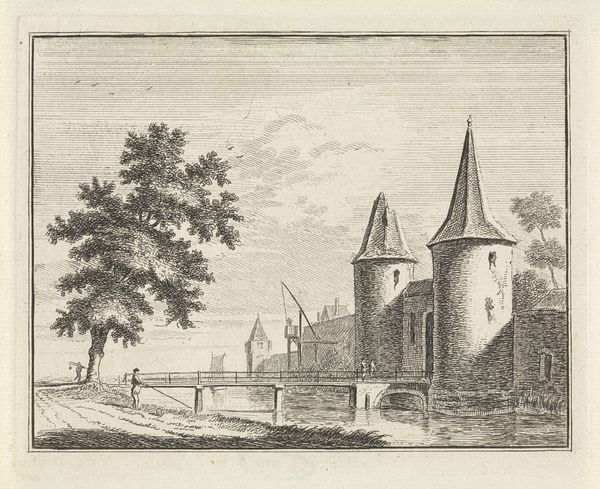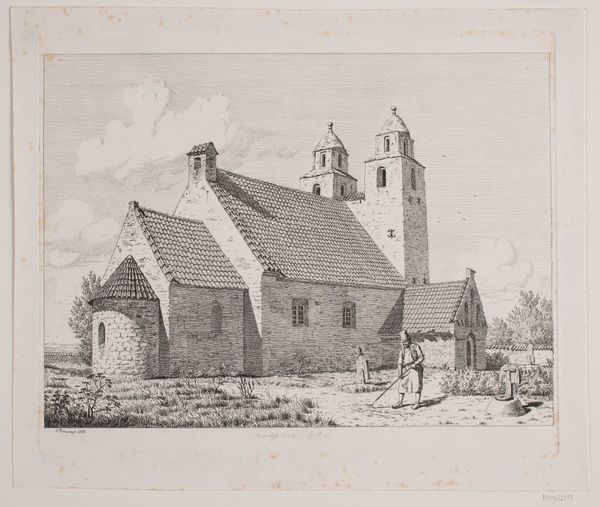
drawing, paper, ink
#
landscape illustration sketch
#
drawing
#
quirky sketch
#
mechanical pen drawing
#
pen illustration
#
pen sketch
#
landscape
#
paper
#
personal sketchbook
#
ink
#
romanticism
#
pen-ink sketch
#
pen work
#
sketchbook drawing
#
cityscape
#
initial sketch
Dimensions: height 43 mm, width 126 mm
Copyright: Rijks Museum: Open Domain
Editor: Here we have Frédéric Thédore Faber's "View of Houses and a Church," created sometime between 1810 and 1817, rendered in ink on paper. It feels like a preliminary sketch, almost weightless. What strikes you about its formal qualities? Curator: Notice how Faber employed linear perspective. The convergence towards a vanishing point enhances depth, but the lines are somewhat inconsistent, aren’t they? This fragmentation, the imperfect rendering, arguably adds to its charm. Look also at the interplay between the dense hatching that defines the architecture and the open, almost barren landscape around it. Editor: I see that! The buildings feel substantial despite being mere sketches, while the landscape fades away. Does that imply something about the relative importance of the built environment versus nature? Curator: It could be. Or, consider it in terms of contrasting textures. The buildings offer a dense, almost tangible surface created through careful hatching, whereas the ground uses sparser, more suggestive marks. How does that affect your perception of the depicted space? Editor: That’s a clever point. The heavier lines of the buildings draw my eye, making the architecture appear closer and more imposing than it actually is. So, rather than nature being secondary, it becomes a backdrop against which these architectural forms are presented. Curator: Precisely. And we could also analyze the relationship between positive and negative space, the balance of light and dark. These compositional choices subtly shape the viewing experience. What started as a seemingly simple sketch reveals itself to be a meticulously constructed composition, doesn't it? Editor: Definitely. I appreciate how paying close attention to the formal elements really deepens my understanding.
Comments
No comments
Be the first to comment and join the conversation on the ultimate creative platform.
